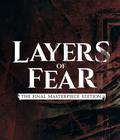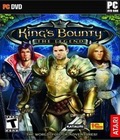Genre: Turn-Based Strategy/Role-Playing
Publisher: Atari
Developer: Katauri Interactive
Release Date: September 23, 2008
Orcs are boring. If I've learned anything from playing games, it is that orcs are really boring. Generally speaking, when generic orcs show up — ones that don't have anything clever done with them, ones who are just muscular green thickies who shout things like, "Me gronk! Me stab human now!" — I let out a groan. Some games have done clever things with orcs and made them much more interesting. Some games just don't learn. So when I spotted an orc fortress in King's Bounty: The Legend, and they acted like that, I nearly cried. Then I remembered that calling this game unoriginal is in fact a really silly thing to do, so I stomped all over the fortress with my army of dragonflies and pirates and sapient, thorn-shooting plants.
Yes, dragonflies and pirates and plants.
And loincloth-wearing barbarians and cyclopes and demons and dragons and dwarves and elves and ents and humans and inquisitors and ogres and orcs and paladins and polar bears and giant rock monsters and skeletons and unicorns and vampires and werewolf-elves and wizards and wolves and zombies and a big goddamn turtle, and that doesn't even come close to the sheer amount of different creatures. It's like a game based on a fantasy convention filled with cosplayers, and this convention is either taking place in SeaWorld, or a marine biologist got the date for his seminar wrong and is wandering around and looking puzzled.
King's Bounty has absolutely no right whatsoever to be good. It's a "remake" of an (admittedly, extremely good) 1991 game that was the precursor to the Heroes of Might and Magic series. It's done by a Russian company. It's had next to no fanfare. In any case, that Russian company appears to have had something to do with the weirdly excellent Space Rangers 2, and that comes as no big surprise because King's Bounty is brilliant. It's just a shame that it's going to get so little coverage because this is the biggest winter that the gaming world has had in a long time, and I can and will honestly say that this is one of the best things I've played this year.
Much like Heroes of Might and Magic, you control a hero who wanders around an overworld, recruiting troops and crushing anyone foolish enough to stand in your way, in simple turn-based strategy combat. Unlike Heroes of Might and Magic, you have no castles, and rather than having the ultimate objective of destroying an enemy who's fighting with you for control over the map, you accept quests in typical RPG fashion and complete them. You get gold and equipment, level up, find items and chests on the map, recruit more and better troops, and beat up enemies.
The combat is simple enough: You have your troops on one side, the enemy is on the other, and based on their initiative, they can move and attack in order. Things are livened up with individual special attacks and your own magic power; you don't have a unit representing you, but you can cast spells to turn the tide. The spells themselves are fairly imaginative, ranging from big fireballs to inflicting on a unit the last amount of damage it inflicted on you, and there are lots. You eventually get access to the Chest of Rage, an item containing various beasties that will obey you and perform attacks once you complete a little quest tied to them. They're basically extra spells with a different mana bar, but they level up as you use them, and Rage builds up as you attack or are attacked. This provides some interesting tactical conundrums. For instance, you finish a fight with full Rage but fewer troops, and nearby is a big group of enemies. Is it better to run away, recruit more troops, and then come back with an empty Rage bar, or to fight, unleash a powerful Rage attack in the first turn since it carries over, and hope that's enough to swing the fight?
The creatures used in combat are, as previously mentioned, culled from just about everything, and they're all well differentiated. While there might be various types of bears that function similarly, what's the difference between a bear and a wolf? Why might one be of more use than the other? The answer doesn't just tie into the stats, but the special abilities and modifiers, which really bulk up the variety. Bears have a useful advantage in that when they're hit, there's a good chance they'll get angry, increasing their attack power. Wolves, on the other hand, can use the Wolf Cry ability — howling, basically, which terrifies low-level humanoid enemies. Sea Dogs (pirates; don't be fooled by the fact that I was talking about animals a moment ago) can use an ability to attack three hexes in front of them with their cutlasses. Priests can bless or heal people. Bowmen can use a variety of arrows with different effects.
The main limitations on your strategy are that you can only have five stacks of troops in your army, so choosing a group that works well together can help. The game isn't so hard that it'll punish you if you pick five stacks of slow, armored brawlers who'll take ages to reach the enemy, though. The difficulty is surprisingly fair, as long as you don't try to do quests that are blatantly not for people of your level. The other limitation is leadership, which is a stat like any other, except that it defines how many of each troop that you can have. This gets improved through equipment, leveling up, and finding flags and banners scattered around each map; a small increase like 30 might only let you get a couple of more troops, but when you see an expensive item in a shop that adds 800 leadership, you'll quickly work out if you can afford it, as that's a massive increase at any stage in the game.
I haven't gone into much depth on the actual numbers side of things, barring that quick foray into leadership, because it's simply not needed. King's Bounty makes everything very, very simple. If you want to calculate the optimum troops in your army at any given time, you can go ahead. If you don't, then you'll do fine by just picking some troops that look good and experimenting. Even taking lots of low-level troops isn't a big downfall, as they have such low leadership costs that you can build up giant stacks of them, capable of inflicting huge damage. They won't stay that giant for long because of low health and defense, but there will usually be enough to make it through. It's an extremely accommodating game, both for beginners and the more hardcore strategy gamers.
When exploring the world and equipping your character, you naturally come across other characters. Some sell things, some give quests, some are the end of quests, and some are antagonistic. By and large, you can respond with a variety of dialogue options, ranging from hilariously antisocial and borderline psychopathic, to the usual sappy-sweet lines that we expect from fantasy heroes. The translations aren't always up to par, but this adds a B-movie sense to the game and detracts nothing whatsoever, as King's Bounty never really takes itself at all seriously anyway.
There are a few annoying design issues and a smattering of bugs, but considering the patches already released, they'll hopefully not be around for long. The most common is that it can be difficult to select things to pick up on the world map, with some runes being easiest to take when viewed from a top-down perspective, which isn't much use for actually wandering around. Fiddling with the viewpoint until you can easily click on what you want isn't that much of an issue, except when you're trying to get something near enemies that are far too powerful for you, as the map plays out in real time, so wandering mobs can easily reach you if you spend too long idling in one spot.
There's a certain shopkeeper near the beginning where the "Goodbye" conversation option actually triggers the "Show me your wares" option and vice versa, and this does crop up occasionally in other segments, but it never really impacts the flow. The only other major issue I had was with upgrading troops, where it'll only let you upgrade all of the troops and not some, meaning that if your leadership isn't high enough for all of them — or if you have, say, 20 upgraded troops and 150 of the normal type — and you want to upgrade only a few, you have to spend a lot of time messing around and reorganizing your army, sometimes necessitating a return to a friendly castle to move things into a garrison. It's a frankly unnecessary pain in the butt, and it's an issue that I desperately hope will be fixed, although it's far from game-breaking.
 In the end, King's Bounty: The Legend is superb. The AI is decent enough, the combat is great fun, and it's imaginative, varied, and hilarious. It's a game where wives and children give bonuses to your combat stats, for crying out loud, and you can match up pirates, zombies, and unicorns in a brutal battle royale. It's a real shame that King's Bounty will probably sell far fewer copies than it deserves because it's a hell of a lot better than some of the blockbuster games that have already been released this season. It more than lives up to the name of the original, surpasses the recent Heroes of Might and Magic titles in terms of sheer fun, and it caters to old fans and those new to the genre. Flawless? No, but King's Bounty makes up for those flaws with a level of charm that's rare these days. If turn-based strategy has ever been your thing, if you liked the HoMM series, if you enjoy thinking, or if the title sounds at all appealing, then give King's Bounty a home this Christmas. Even if you only download the demo, you simply must try this game.
In the end, King's Bounty: The Legend is superb. The AI is decent enough, the combat is great fun, and it's imaginative, varied, and hilarious. It's a game where wives and children give bonuses to your combat stats, for crying out loud, and you can match up pirates, zombies, and unicorns in a brutal battle royale. It's a real shame that King's Bounty will probably sell far fewer copies than it deserves because it's a hell of a lot better than some of the blockbuster games that have already been released this season. It more than lives up to the name of the original, surpasses the recent Heroes of Might and Magic titles in terms of sheer fun, and it caters to old fans and those new to the genre. Flawless? No, but King's Bounty makes up for those flaws with a level of charm that's rare these days. If turn-based strategy has ever been your thing, if you liked the HoMM series, if you enjoy thinking, or if the title sounds at all appealing, then give King's Bounty a home this Christmas. Even if you only download the demo, you simply must try this game.
Score: 9.1/10
More articles about King's Bounty: The Legend













 Kings Bounty: The Legend is an adventure game with tactical turn-based battles and role-playing elements. In a fairy tale fantasy world of fearless knights, evil mages, wise kings and beautiful princesses the player controls a hero. Leading their character through the game world, exploring it, commanding armies in battle and accomplishing various quests can mean great reward or huge defeats.
Kings Bounty: The Legend is an adventure game with tactical turn-based battles and role-playing elements. In a fairy tale fantasy world of fearless knights, evil mages, wise kings and beautiful princesses the player controls a hero. Leading their character through the game world, exploring it, commanding armies in battle and accomplishing various quests can mean great reward or huge defeats.









































